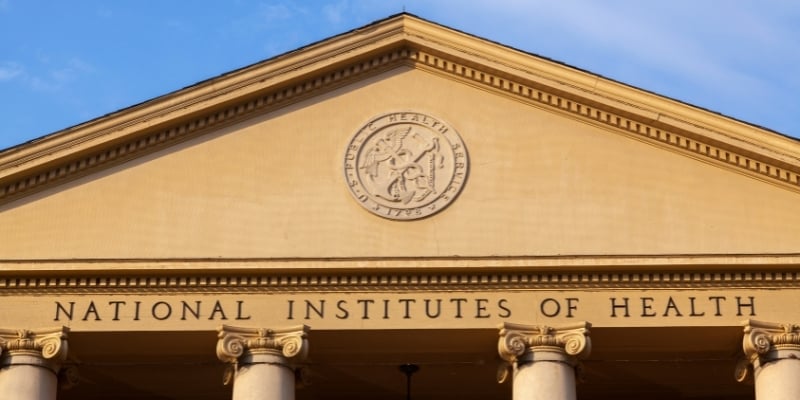In veterinary school I learned to put needles in a banana. Instructors now have access to a variety of human and animal models designed to reproduce the experience of medical procedures. Some models even bleed. But back in the early 2000s, bananas had their place.
In course work and clinics, veterinarians learn to modify injection techniques, locations, and equipment according to the species and situation in question. It’s harder than you think to hit a jugular vein on a llama. But despite years of training as a “doctor of all species,” nobody taught me how to inject a human.
In January 2021, Colorado Gov. Jared Polis signed an executive order allowing veterinarians, along with other health care professionals, to give COVID-19 vaccines to people as part of the state vaccination campaign. The announcement came months before the U.S. Department of Health and Human Services, acting under the Public Readiness and Emergency Preparedness Act, made a similar national authorization. Our state and local government recognized the need for additional personnel to help administer vaccines, and health care professionals rose to the occasion.
From building an understanding of the virus itself and its transmission through research, developing vaccines and therapeutics to combat infections, to increasing the state’s diagnostic testing capacity, Colorado State University continues to contribute expertise and resources to the state’s pandemic response. So it should not have been a surprise that at 5 a.m. on my first volunteer shift, I ran into Dr. Andrea Bohn, a veterinarian and departmental colleague.
“I’m so glad that veterinarians are recognized as capable health care professionals and are able to play a role in this monumental vaccine effort,” Andrea said. “I would like to do what I can to keep people healthy and help end the pandemic.”
Andrea and I are veterinary pathologists in the Department of Microbiology, Immunology, and Pathology at CSU. Unlike others in our department, we are not actively working on vaccine development or diagnostic testing, but were keen to be part of the other end of the process: getting people immunized.
We signed up to help through the Colorado Volunteer Mobilizer for Medical and Public Health Professionals and completed the required Federal Emergency Management Agency training. We learned that the human deltoid muscle is considerably larger and easier to identify than a cat’s quadricep, which alleviated a lot of our concerns. We watched videos on Z-track injection techniques and were happy to learn that there’s no need to bribe a human with a treat. We were thrilled to be able to help.
The irony was not lost on us when our inaugural volunteer shifts took place at the JBS meat packing plant in Greeley on that first day of Phase 1B.3 of the state’s vaccine distribution plan, when efforts expanded to include frontline agricultural workers. Veterinarians are engaged along the entire animal production system and have many public health responsibilities, but vaccinating human employees at a meat plant amidst an infectious disease crisis was a new one.
Staff at this facility worked through a year of the pandemic to keep the animal production market moving, putting meat on the tables of consumers. Working closely with, and under the supervision of, human doctors, nurses, and other public health professionals, it was an honor to play a small role in the immense effort of vaccinating – and later providing booster shots to – more than 4,000 people essential to our animal food system. Decades after our core veterinary training, Andrea and I added another species to our repertoire and officially learned to vaccinate humans.
Colorado entered Phase 2 of vaccine deployment April 2, and now anyone over the age of 16 is eligible to receive a vaccine. As vaccine production speeds up, there will be an increased need for veterinarians and other authorized health care providers to assist with vaccination efforts.
To date, an additional 45 members of CSU’s College of Veterinary Medicine and Biomedical Sciences are answering the call, and there are still opportunities to help. Health care professionals can volunteer online through sites like the Colorado Volunteer Mobilizer. The list of eligible health professionals includes certified nurse assistants, practical nurses, podiatrists, optometrists, chiropractors, dentists, physical therapists, occupational therapists, veterinarians, respiratory therapists, speech-language pathologists, and surgical assistants.
Ironically and tragically, 2020 has also been a tough year for bananas. Tropical race 4, an aggressive soil-borne fungus, crossed the ocean to Latin America, devastating crops and threatening the entire banana industry. If and when scientists come up with a way to protect this valuable commodity and there is a need to hand-treat all the bananas out there, rest assured that veterinarians are trained up and keen to help.
This story was originally written for CSU Source.
Dr. Colleen Duncan is an associate professor of pathology in the Department of Microbiology, Immunology and Pathology. She is passionate about how the environment, particularly climate change, influences animal health. She uses epidemiology and pathology to investigate disease in a wide range of domestic and wild animals. She’s actively involved in the Colorado School of Public Health, the CSU One Health Institute, the CSU School of Global Environmental Sustainability, and the CSU President’s Sustainability Commission.






